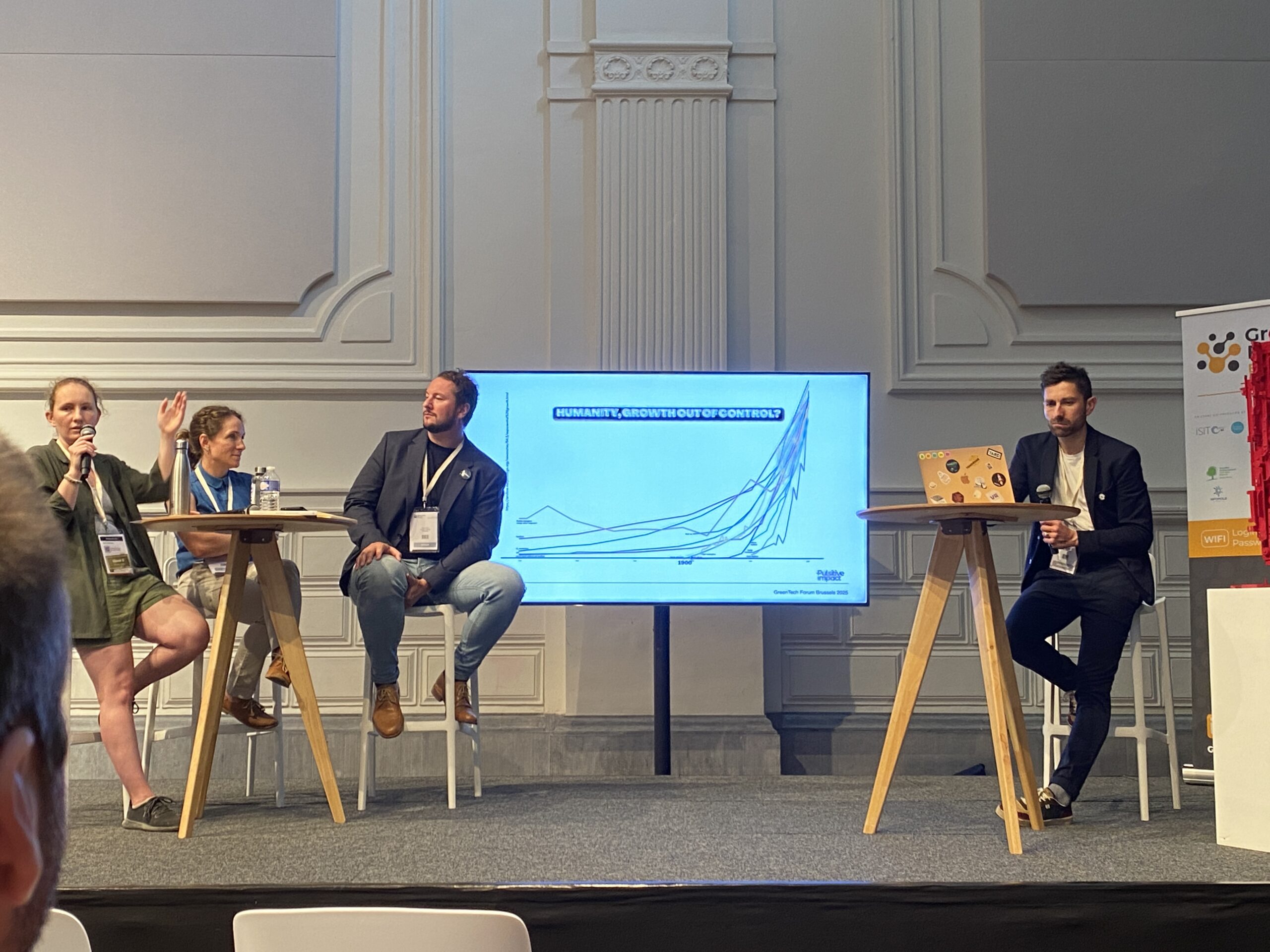2-days conferences at Tour&Taxis, where I tried to gather more insights on how I can bring more green tips to my clients.
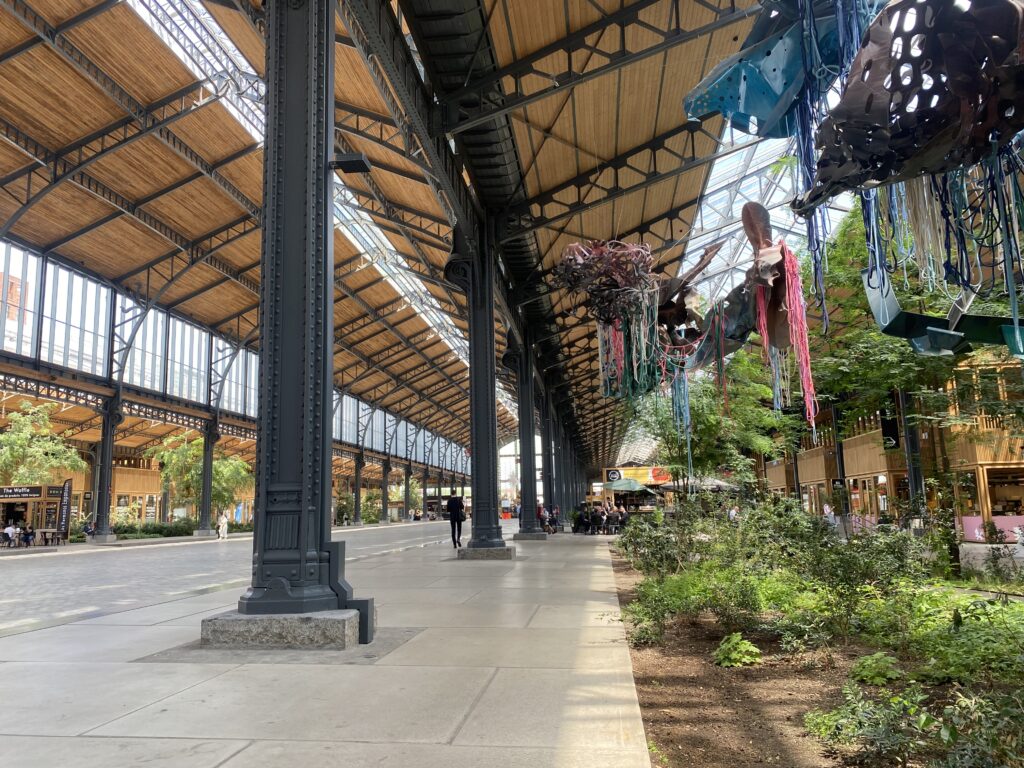
Here are my key takeaways.
Covered conferences
- Business model of companies: why move away from volume logic, and how ?
- The ISIT-BE community in action: building new narratives for the future of tech
- Transition pathways to sustainable use of ICT: towards more digital sufficiency
- CSRD: understand everything in 30 minutes
- Cybersecurity: what compatibility with Green IT in the era of AI?
- Frugal AI, the only credible path?
- Low-tech, permacomputing… How to innovate tomorrow while respecting planetary boundaries?
- From Vision to Action: Manage your Green IT transition with CircularIT
[Day 1]
Business model of companies: why move away from volume logic, and how ?
Earth’s resources are limited, humanity’s growth as well if we don’t shift the focus.
We need to replace GDP by a new index. Degrowth is a matter of strategy, not a matter of morals.
Circular economy is developing.
We also observe now many examples of big players selling services maintenaining high quality devices, instead of selling volumes of soon obsolete devices: it’s more profitable, it’s more environmental friendly, it allows to maintain local employment.
Therefore, a long-term view is necessary to pivot from the industrial model.
We are then looking for built robuste business models, despite a changing environement. It’s the opposite of optimization.
Local, sustainable and trustable businesses can be seen as robuste.
How to avoid AI per default ? Regulation, termes of service
The ISIT-BE community in action: building new narratives for the future of tech
Workshop as a Tech Fresk (Fresque technologique)
Humanity has been stored as much data as today.
Consequences:
- Phubbing: fear of being separated by one’s phone
- Chinese social credit
- More trust on machines (AI) than on humans
- …
Each new technology claims to liberate us from work… but it never happens, and increases the pressure on our mental health.
Speaker: Belgian Institute for Sustainable IT
Transition pathways to sustainable use of ICT: towards more digital sufficiency
Honesty is key: ICT participates to the climate crisis. We need to find the sweet spot between two dimensions:
- total control (ban ICT) vs total freedom (Wall-e world)
- competition (commercial war) vs collaboration (only talking)
System thinking: our system patterns are dysfunctional.
- Fixes that fail -> Efficiency leads to greater use (Jevons’ Paradox).
- Tragedy of the Commons -> User attention is the main part of many online business model.
- Success to the Successful -> In current tech race, the winner takes it all.
This leads to our mental health decreasing. Reducing ICT is better for the environment, AND for our own benefits.
Companies need to:
- Focus on fit-for-purpose as a means to ICT to answer business targets.
- Strenghten circular economy for hardware.
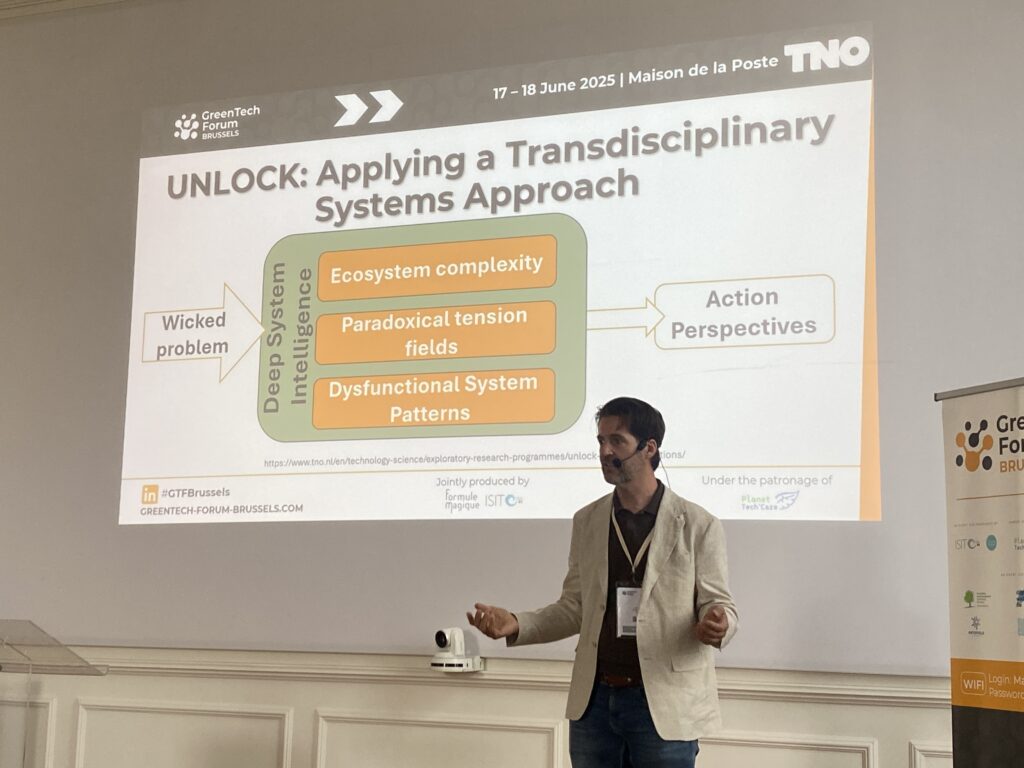
CSRD: understand everything in 30 minutes
CSRD means Corporate Sustainability Reporting Directive, an EU directive. Green Deal plans Europe to become climate-neutral by 2050, by responsabilize the whole value-chain.
How to turn compliance into opportunity? (while avoiding green washing!)
Regular reporting and governance strategy are key:
- Report:
- double materiality assessment
- standards and frameworks
- impact calculation
- regularity reporting
- Govern:
- Security
- Data privacy
- Scalability
- Auditability
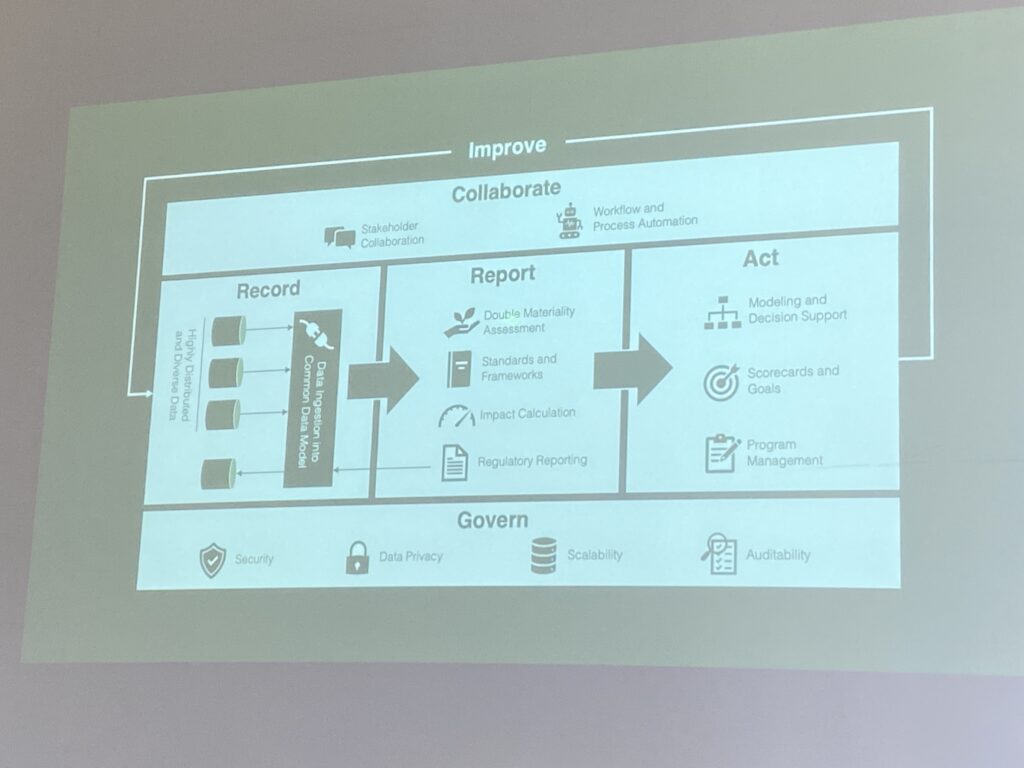
Sustainability compliance is now demanded by banks, investors and the biggest clients.
Cybersecurity: what compatibility with Green IT in the era of AI?
Cybersecurity has to be considered by design. And Green IT must be seen in the same perspective.
Collecting the right amount of data, and the right data (ie not sensitive one), can be filtered at the source, before entering the processing path. Proper devices attributions limit energy consumtion (infrastructure, power, purchases). Simplified monitorings allow more efficient gouvernance.
Get frugal thanks to:
- Predictive maintenance
- Detecting patterns of attacks (with R)
- Avoiding generative AI and online LLM (ChatGPT)
[Day 2]
Frugal AI, the only credible path?
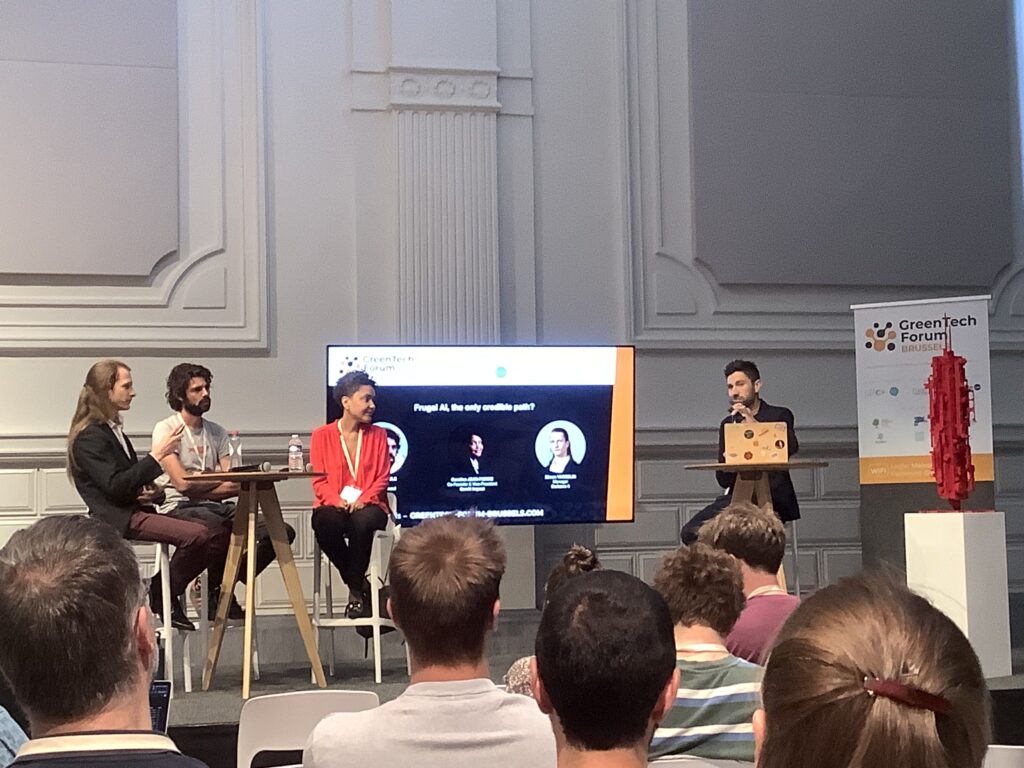
AI impacts are underestimated because of a big lack of transparency from the biggest players. AI’s footprint depends also a lot on its source of energy.
AI frugality means:
- Define the needs, IA does not fit all needs.
- Compare models, smaller models can be as efficient as bigger ones.
- LLM models demand lots of data, and mislead uninformed decision makers
GenAI can also introduce errors and create short-sighted code or imaginary sales offers, for example. Who is legally responsable for these mistakes?
Frugal AI tools:
Low-tech, permacomputing… How to innovate tomorrow while respecting planetary boundaries?
Digital first should leave the stage to people’s need first: asking the right question is crucial. The answer can be technical, but it’s not the target. Collaboration and time-spending on collaboration are key.
Rethink our digital infrastructures to reduce energy and water consumption: best practices already exist.
Extractive vs genrative: pick your framework.
- If you base your purpose, networks, governance, ownership, finance into an extractivist framework, the output will be negative for the environment.
- If you base your purpose, networks, governance, ownership, finance into an generative framework, the output will be positive for the environment.
That’s the Doughnut economy
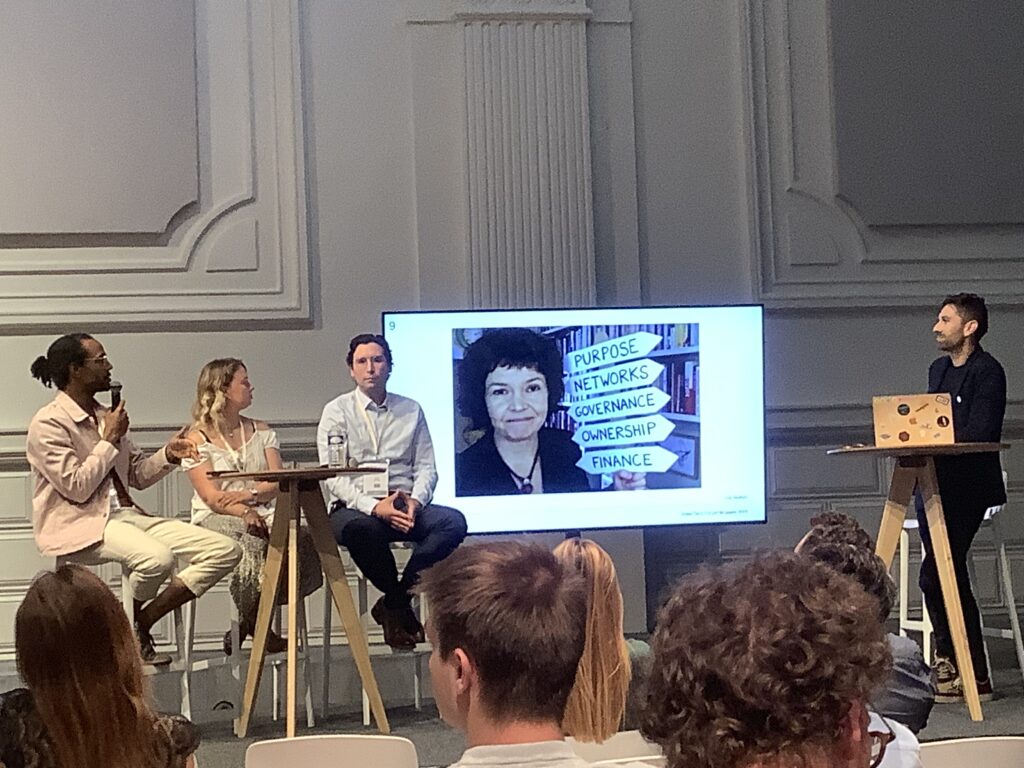
From Vision to Action: Manage your Green IT transition with CircularIT
Simple reporting:
- Collect data to assess the organization’s Green IT maturity
- Measure and monitor its environmental IT footprint
- Programme and change management
- Certification
- Simulate new equipment footprint
- Analyze real time KPIs and Green IT progress
